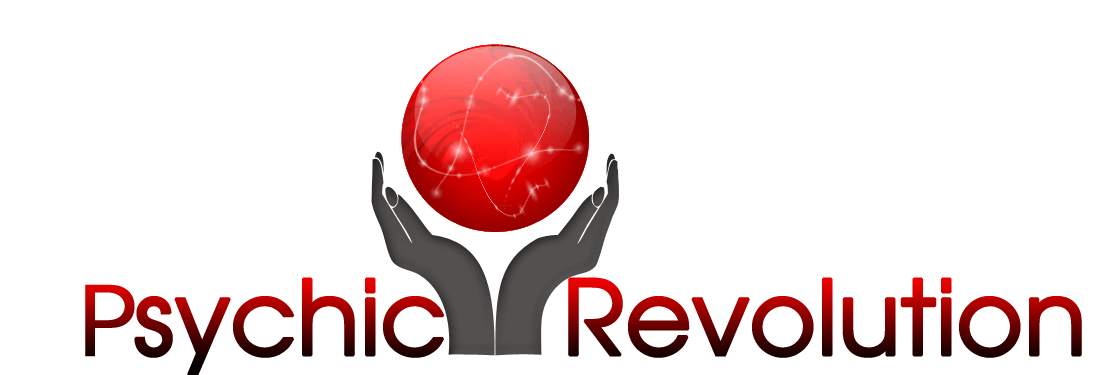Conversations with the Dead
In the above video, the psychotherapist Allan Botkin and some of his patients talk about induced conversation with those who live in the afterlife.
Mmm. What do I think about this? I feel fairly certain that it is possible to bring on conversations with the dead. I’m happy to go along with this but what about actually inducing them.
Do we have a right to summons the dead for our own health and healing? Does this action interfere with their own existence beyond the grave and do they have a right to deny us access to them? I would hope the answer is yes, to the last question. Yes, they have free will and no they are not there at our back and call.
That model of the world and the afterlife sits well with me. How about you?
Beginning the Conversation
Do we have the right to access the dead? If you think we do, then are there rules and codes of behaviour that need to be heeded? Are they same as apply here on earth and who ‘polices’ them?
Please leave your thoughts on the rights of the deceased and the responsibilities of those who are living who summons the dead. I’d be interested to see what you think.






In Dr. Botkin’s book, Induced After-Death Communication: A New Therapy for Healing Grief and Trauma, he relates an incident with an IADC client where he thought the client had a particularly good connection with the deceased. He said he asked the client if he could ask a question of their loved one. The client said, “Yes.” Botkin asked what the deceased thought about IADC. The answer he got was, “It’s fine. Just remember, we’re in charge of it, not you.” That pretty much says it all.
Graham, I hear what Botkin is relaying but I like to think we have a say in the process as well. I agree, some people are not able to shut down and therefore they are more open to after death communication, but where does free will and choice come into this.
I think the point is valid that even the dead have rights and thus, who are we to make them at our beck and call. Similarly, I’d like to think that respect runs both ways – at least most of the time.
I presume you are recommending the book, as a good read Graham?
Cheers
Rosemary
As an IADC therapist myself, the point I would make about the process is that neither the therapist or the client is summoning the dead. They are merely being open to what is already there. The people that love us, who we want dearly to hear from after their deaths, are just as eager to let us know that they are still here for us. Obviously, when a person comes for an IADC session they are exercising their free will. When they connect with the person they are grieving, that spirit has chosen to be in contact with their loved one. IADC doesn’t work if you are just tryig to connect with someone who wasn’t meaningful to you in life. It’s not a Ouija board for therapists, or something like that. It works on the connection and need that is already established in the lives of the principals involved. Yes, I would recommend Botkin’s book. It is groundbreaking.
Graham
How wonderful to know that you are an IADC practitioner. Your reading recommendation is all the more valued 🙂
I understand what you are saying about free will in the context of a session. Out of curiosity and in your experience, has the ‘wrong’ person ever come through?
Cheers
Rosemary
That’s one of the nice things about IADC–you are only working on one person at a time. No, I’ve never had a client working on one particular person accidentally get someone else. What I have experienced, and this is actually common to IADC therapists (there are about 80 of us world wide right now trained by Dr. Botkin), is a “shared experience” with the client. That is, while they are sensing the person who died with them, I get the same perceptions at the same time before they tell me what they are experiencing.
In one case, the client was sitting and talking with his deceased grandfather, and I witnessed that, but I also saw his father behind them, whom the client did not want to see or converse with. The father was ready to apologize, but my client was not ready to receive it, so it didn’t happen for him. The father was not going to force it upon him, which would have just been another abusive incident to my client in a long history of them from the father.
What a remarkably privileged position to be in Graham.
The healing that takes place must be incredible. I guess the example that you’ve cited is one where the freewill of the living over rides that of the deceased and that seems appropriate to me.
In your experience Graham, is there such a thing as a cluster of souls that agree to work together ad finitum – reincarnating together over and over or at least working closely between the two worlds?? If this is your experience, are our pets part of this picture? And, how many people are we talking in a cluster?
Cheers
Rosemary
Yes, I do feel very privileged to do the work I do. IADC changes the context of grief, and can make it more of a positive task for people. Through it, you know you aren’t trying to “get over” something, but rather you are “going on” to something with the same person. In fact, the more grief one processes, the clearer the connection with the person on the other side.
As far as soul groups are concerned, I don’t have much data from my practice, but I do have data from my own experience. In several spontaneous past life experiences I have seen many of my present family members in other roles in other lifetimes. My present wife and I were brother and sister early in the 19th century growing up on the coast of Massachusetts. We learned in a double-induction past life regression that we had once been husband and wife back in Italy in the 15th century. My wife has experienced her favorite cat companion as previously being her favorite horse in another life time.
The big news from all of this, I think, is that death does not equal extinction. That fact alone should be a boost to mental health for anyone who can be open to it. You always have a place in the universe, and you are always loved no matter what you are going through, what you did or didn’t do, or how “successful” you feel your life has been. It is much harder for neuroses to persist where those considerations are front and center.
Graham, in saying “In fact, the more grief one processes, the clearer the connection with the person on the other side”, I presume we can make the distinction between grief and guilt?
I think most of the readers here at Psychic Revolution (and I may be wrong here so, those reading this who disagree, please bounce in now) would already be of the mind that life and death are a continuum. However I, for one, would like to explore the idea that we are more asleep now when we are alive and more awake when we are dead. To understand why this is so, I think will quieten the rational side of my mind.
Thank you for sharing a couple of your past life stories Graham. Please let me know if you would like to write a short review of Allan Botkin’s book or introduce us more to the work you do.
Cheers for now
Rosemary
I don’t know if it is even possible but I do not think we have a ‘right’ to access the afterlife at all. I do not think it is morally right even if it is physically possible to ‘summon’ up discarnate spirits. If they want to re-enter our world, so much the better. But many of them will have been pressured enough in their mortal life without our continuing this in their afterlife to satisfy our ‘on demand’ existence here in the very material realm!!
Howard, I think I understand what you are saying and I happen to agree with you. I dont think we have a right to insist the deceased be held back, to the extent that they are at our beck and call. That said, however, I do believe that they too have the right to offer their assistance and we can accept or decline. In reality, of course, the lines are blurred.
Cheers
Rosemary
Hi Rosemary,
You know of me from a different e-mail and I haven’t commented much lately, but this one struck a chord with me.
I don’t think that we have a right to demand that someone who has passed on come back to have a chat at our beck and call, but I think in certain circumstances, it could be beneficial to both living and deceased to have some communication.
For me personally, there are two people that I would very much like to communicate with.
I would love some answers to the many “why” questions that I have, but the main reason for my own desire to chat is that I want to tell both of those people that I forgive them. One in particular I am hoping has found peace in afterlife that he never had in his life and if me telling him can help him then I would gladly do so.
It would also aid in my own healing, but that is not the main reason – I have already made peace with myself.
There are also plenty of people that I would love to have just one last chat with, but those are for purely selfish reasons and I could not justify those demands.
My two cents worth 🙂
Jen
Hi Jen
Lovely to hear from you.
There are many who would say that your talk with the deceased will be heard and I presume you are doing that already. Its not the same I guess if we dont get a reply – or maybe we do, it just isn’t vocalised. Im also a thinker that the cycle of life continued through the next life to the one beyond, so it is never too late and eventually we will all get our suff sorted. Even though time doesnt exist, perversely I think it is only a matter of time before we resolve issues (and create new ones!!!)
Take care Jen. Send them your love; Im sure they are more worldly-wise where they are than where we are now.
Ciao
Rosemary
Rosemary, surely this is no different from seances? Provided that this is so is it not voluntary on both sides of the “fence”? The other point I would make is that no one is “dead” on the “other side”. By the way, what is the opposite of incarno? Excarno?
Hi Ian
I can see why you would say IADC and seances are the same but maybe some distinctions can be made.
I think there are some subtle differences, one being the motivation for the connection and another being the ‘controlled environment’.
Looks like we are playing a game of semantics. Re incarnate, the opposite is probably discarnate and the meaning of dead depends on the context…no longer alive, no longer current, relevant, or important, characterized by a lack of activity or excitement etc
Cheers Ian
Rosemary
Fascinating discussion!
I think IADC therapy is a great gift to the world as a healing for grief. I offered past-life recall as one modality in my psychotherapy practice. My clients experienced peace, forgiveness and joy from their experiences with this. Relationships were healed on both sides of the line between the so-called living and the so-called dead.
I’ve had personal experiences with relationship healing in this way, too. My mother came to me several years after she passed away to apologize for the abuse with which she raised me. A soul who had been my father in a past lifetime came to me to apologize for an incident which caused my death. In both cases, these relationships were healed with love and understanding.
I used several modalities in my psychotherapy practice through which my clients could access their soul selves. These modalities enabled my clients to resolve issues and heal as opposed to learning to cope. The next step in the field of psychotherapy should be to bring the soul into the healing process, as IADC and other soul-centered modalities do. The mind-body connection is a step in the right direction. The mind-body-soul connection completes the circle of life within us.
Hello Nancy
My apologies in taking so long to reply to you.
Thank you for sharing your experience with us. A lot of energy is trapped when we are in coping, rather than living mode, and if we can release the past then we are free to truly live in the present.
I love your last sentence Nancy.
Cheers
Rosemary
We have every bit as much right to contact the dead as we do to telephone the living, and the dead have every bit as much right to refuse to answer as the living do to screen their calls.
Personally, I feel that the dead are people, just as we are, with the difference that they are not (usually) physically present. They don’t get to know “everything” simply because they are dead, nor do they change their essential personalities. A nasty old coot on this side is likely to be a nasty, possibly younger, coot on the other side as well.
As for using conversations with the dead in a therapeutic setting, as with past-life regressions, it doesn’t really matter whether the experience is “real” or not. What matters is whether or not the patient experiences relief or healing. It does no harm to believe that they are conversing with the dead, and their beliefs are their own business just as your beliefs, whatever they may be, are your business and yours alone. We cannot, by definition, have a 100% certainty about what happens after death; we can make inferences from our own experiences and those of others. Hell, at this point, we can’t even agree to whether there is such a thing as “objective reality”, let alone decide what may or may not be included in it.
Ultimately, if the experience improves the patient’s quality of life, then the conversation is valid.